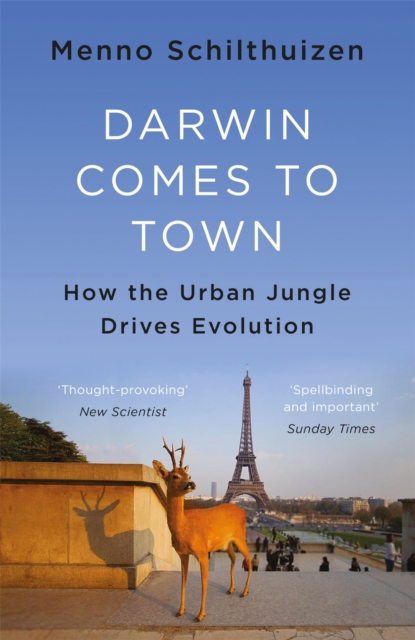
As our species’ footprint continues to grow, consuming more and more of our planet’s resources, the habitats we create for ourselves spawn more and more potential ecological niches for enterprising species to exploit. Darwin Comes to Town explores how certain plant and animal species have begun to adapt to life alongside humans, and the traits that pre-dispose certain species and not others to integrate themselves into such environments.
What I particularly liked about this book were the examples Schilthuizen gives of far-from-obvious new human-made ecological niches that species have begun to exploit. Who, for example, would have thought that the patches of grass beneath the UK’s electricity pylons might comprise an interesting new niche? Our ageing pylons are coated in zinc, which has slowly leached into the soil beneath, creating a selective pressure for grasses more tolerant to that metal. Similarly, our habit of spreading rock-salt on our roads in winter has created pressure for more salt-tolerant plants in roadside verges.
Schilthuizen also explores the more obvious changes we have made on our environment, such as destroying wilderness, introducing non-native species, littering our streets with food, polluting the air, banishing darkness from the night sky, and filling our world with noise—all changes to which species have had to adapt, sometimes very successfully.
Darwin Comes to Town is an interesting, entertaining book, and unexpectedly uplifting at times: as we inexorably destroy wild habitats, we do, albeit unwittingly, occasionally provide new opportunities for species to exploit.
- Buy this book from Bookshop.org (UK) and help tax-paying, independent bookshops.
- Buy this book from Amazon.co.uk
- Buy this book from Amazon.com